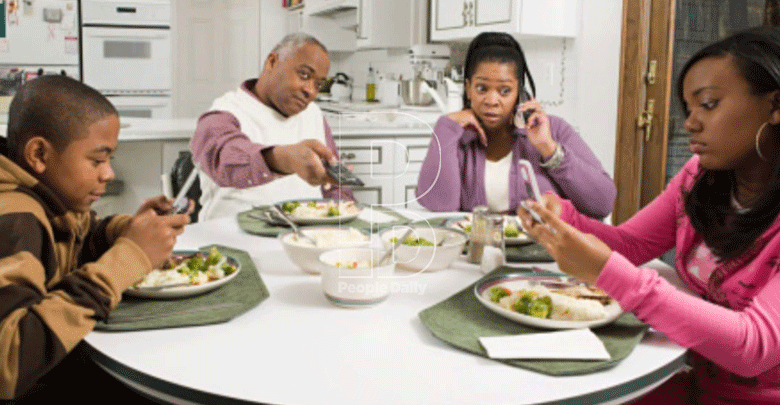Family connections in a digitised world

Sandra Wekesa @wekesa_sandra
After a long day at work, Pauline Karianjahi longs to go home to relax in a calm and quiet environment.
Her evening routine involves freshening up and checking on her children as they do their homework.
Although she at one time or another checks her social media pages, she ensures that her attention is channelled to her two children, aged 10 and eight years.
While her children are do their homework, Pauline engages them to know what is happening in their life, not only at school, but in other aspects of living in general.
“I hardly ever get time to be on social media during the day, so in the evening, I go into WhatsApp or just follow through some other social media groups to update myself on what is happening, or any conversation and debate I may have left hanging in the morning before work,” explains the businesswoman.
Pauline shares that although technology has become an inevitable part of our lives— especially during coronavirus pandemic, which has moreover proven how important technology is for us to stay connected, work, communicate and basically survive, many families have neglected the physically bond.
She says many parents lack time to bond with their children either because they are busy spending time on social media or catching up on their latest programme on TV or YouTube.
For Teresa Onyango, an accountant, she admits that it is hard having a conversation with her child sometimes because she has to ensure that she watches her daily soap opera that airs from 8 to 9pm.
According to her, this tends to be the only form of relaxation that she craves after a hectic day at the office.
“I too, need my peace of mind that I crave for. I get this peace of mind as I relax and watch my favourite soap opera,” she explains.
On weekends, however, she redeems the time lost by being with her child. Sundays in particular, are the most sacred time for them because they get to catch up and spend quality time together.
On these days, she would be off social media and generally have limited screen time.
She prefers taking her child on play dates and have conversations around what is going on in her child’s school life and struggles she could be going through.
“I know it is hard for her, since she is just eight years old and probably wants to spend more time with me.
But also, I wouldn’t want to take out the pressure I get from outside on her since she is just a child and doesn’t deserve that,” she explains.
Walk into many households in the evening and you find parents fixated on their phones, or busy watching TV, an act, that Jane Ngatia, counselling psychologist and educationist says is risky for a family unit.
This not only breaks the family bond, but also affects the relationship between parents and their children.
Parents who spend excessive time on their phones struggle to offer consistent emotional attunement to their children.
They deprive their children of eye contact, undivided attention, facial expressions, gestures, and other non-verbal forms of communication.
Strangers at home
“As a parent, you need to spare time for your children. You need to come up with bedtime routines, and after school hobbies that would strengthen the bond in your family,” she explains.
“You might find a parent so busy on her phone instead of trying to deliberately create time for her children.
This leads to loss of connection amongst children and parents. As a result, they begin to view each other as strangers in their own homes,” she says.
Prof Salome Bukachi, Associate Professor of Anthropology, Institute of Anthropology, Gender and African Studies at the University of Nairobi, says one mistake parents make while raising their children is not giving them the attention they need.
This becomes an issue because children begin to find it elsewhere. “From the time they are born, children need experiences and relationships that show them that they are valued and appreciated by their family,” she says.
This, she explains, can be done through sparing time to listen to your children, talking about their day’s activity with them and helping them navigate through life.
“In this contemporary era, there is so much technology that wasn’t available 20 years ago.
This has affected family units and relationships at home. You will find a parent spending more time on social media and forgetting to build that bond with their child and this is where the problem comes in,” she explains.
Although this is not always the case, adolescents who are missing emotional attunement may turn to substance use, video games, sexual promiscuity, self-harm, disordered eating practices, and risky thrill-seeking behaviours to fulfill their basic needs of love and connection.
Additionally, parenting is more of monkey see, monkey do. If you don’t want your children on their phones while they are hanging out with family or friends, then try to set the phone aside when you are spending time with your child or friends.
However, Bukachi believes that if parents spared the little time they have, things can be different.
“If the modern parent would just get home and help her child with homework, or talk to them before they go to bed, we wouldn’t minimise cases of estranged parents, or toxic children. Bonds in the families would be strong,” says Bukachi.












